6. Watchmen
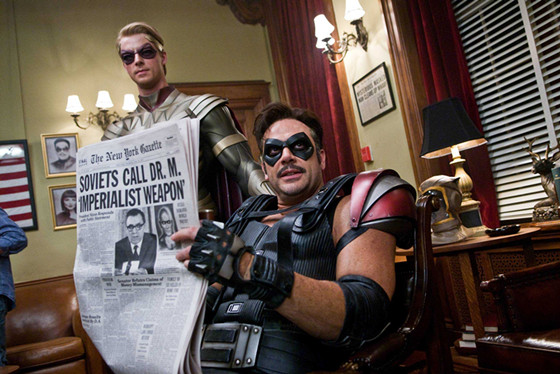
This is the most faithful adaptation on this list by far, as it essentially copies the acclaimed Alan Moore/Dave Gibbons graphic novel verbatim at times, especially when it comes to the scenes involving Dr. Manhattan and Rorschach. The most significant change involves the ending. In the movie, Ozymandias frames Dr. Manhattan to make it look like he blew up several of the world’s major cities, while in the novel, he fakes an alien crashing into New York. Snyder’s other changes are minute, yet enormous at the same time.
One such change comes from the visuals: while the frame compositions are essentially stolen from the book, Snyder went with a darker colour palette, choosing to go with a lot of blue, while the book has very bright and poppy colours to make it look like it’s just a regular superhero comic (though it’s not).
Also, a very important change has to do with the characters: the book portrays the characters as very pathetic humans trying to live an unrealistic fantasy, while in the movie, director Zack Snyder basically just makes them superheroes. Such differences have made the movie very polarizing; generally those who love the book don’t like the movie, and vice-versa. Regardless, Watchmen is worth all the debate it’s sparked.
7. Starship Troopers
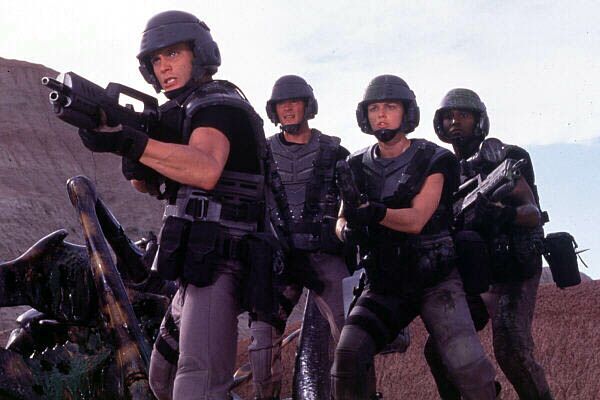
Robert A. Heinlein’s controversial sci-fi novel essentially promotes fascist ideals and has racist undertones regarding the bug aliens, so director Paul Verhoeven decided to satirize the novel instead. Verhoeven didn’t even read the entire novel because he found it too boring; he just read the beginning, and made up the rest from there. Much of what inspired the resulting movie came from Verhoeven’s experience as a young boy growing up during World War II.
The movie opened to mixed reviews, due to some critics claiming that the movie promoted fascism, while Verhoeven, scholars, and the majority of critics and audience members agree that it looks at the book’s fascist ideals ironically, and that it is a gorey fun time as well. We’re all just glad he was able to follow up Showgirls with a good movie.
8. The Shining
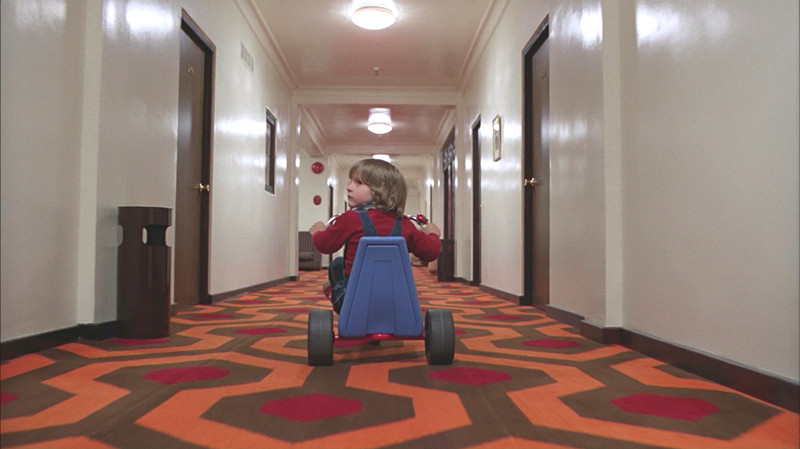
No faithless adaptation list would be complete without the most famous one of them all: Stanley Kubrick’s The Shining. Stephen King actually hated this movie so much after giving Kubrick the rights, that he produced his own mini-series based on his acclaimed best-seller later on, although the series is greatly overshadowed by the movie. Initially, it was critically and commercially panned mostly due to its slow pace and probably because it didn’t match the novel, but over time the movie has gotten the recognition and admiration it deserves.
The movie’s most famous images are nowhere to be found in the book. There’s still the Torrence family and Jack goes insane while they stay at the hotel as he starts to lose his mind, but there’s no maze or twins for example. A notable (but seemingly small) change is that the mysterious room is not 237, but 217 in the book.
There’s an insightful little documentary that’s worth checking out which delves into all the theories which the movie could be about, and it explains in detail how it differs from the source material called Room 237. The Shining is regarded as one of the greatest horror movies ever made. Its subdued, mysterious tone and infinite layers have gripped audiences for decades. It is a must-see for movie lovers everywhere.
9. Forrest Gump
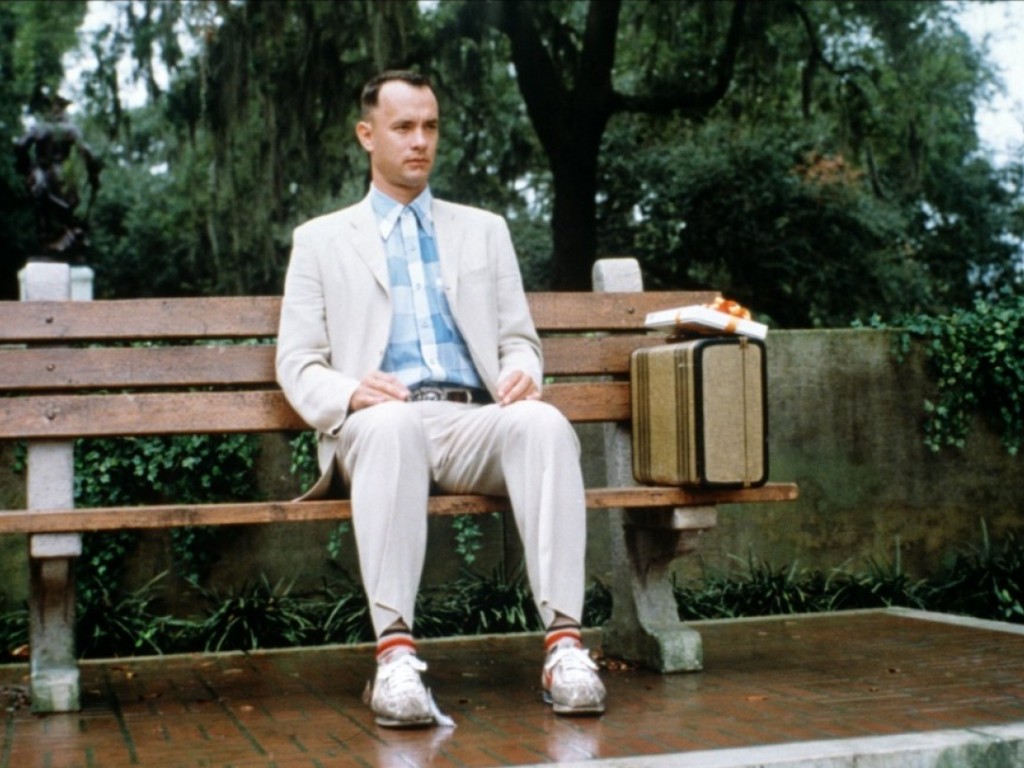
Surely a movie as harmless as Forrest Gump would be based on an equally safe source material, right? Well, it turns out that the movie sanitizes a few important details. As far as plot and characters, the movie and the book are like peas and carrots; both are about a man with a low IQ who stumbles about through American history, and is in love with a girl named Jenny, but Forrest himself isn’t as much of a Tom Hanks as he is a John Goodman. In the book, Forrest is also an idiot savant, instead of just an idiot, as he has quite the talent for math.
The movie also removes many of Gump’s sexual exploits, his use of profanity, and a scene involving cannibals, and so on. The movie may not be as risqué, but it is still probably one of the most quotable and sincere movies ever made, even if it resorts to sentimentality more than once. Let’s not forget about the fact that this movie is a technical marvel, incorporating JFK, Richard Nixon, and John Lennon through the magic of CGI, which is just as mind-blowing now as it was then.
10. V for Vendetta
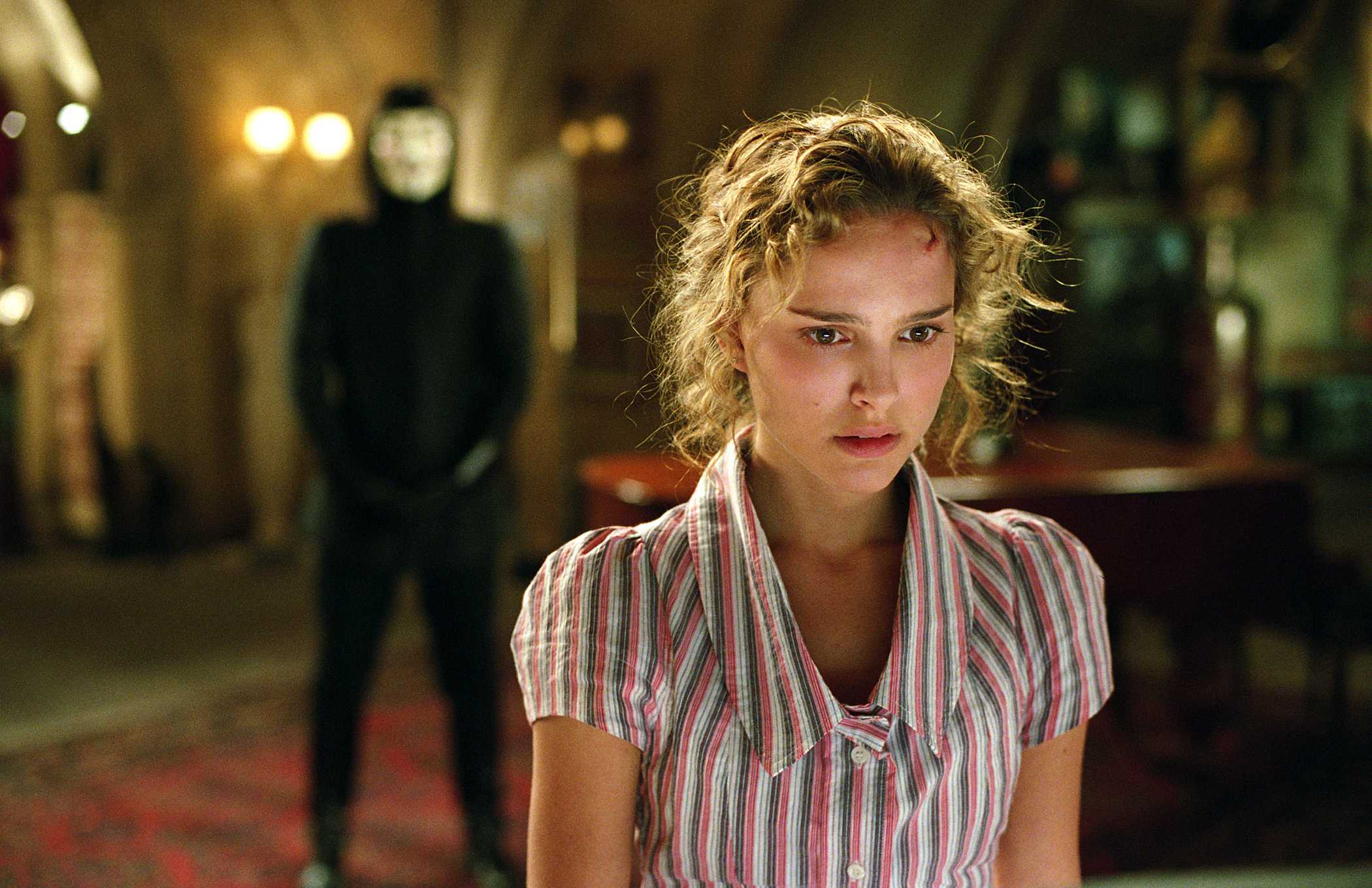
Alan Moore famously hates all the movies based on his works, but V for Vendetta manages to do justice to its source material while having just enough changes so that it holds its own. One of Moore’s bigger complaints regarding the movie is how the book is about anarchy and fascism, while the movie never even says “anarchy” or “fascism”. The political nature of the book is certainly still there, but it’s not so much on the forefront as it is in the book.
Apart from this, the movie’s tone, visuals, and certain plot points are different. With regards to the visuals, the book has a very lurid, dark, and dreamlike look to it, while the movie looks much more realistic and straightforward; in both cases, the visuals are stunning. The character V was translated almost perfectly, but Evey is much different.
In the book, she actually winds up taking V’s place, and literally becomes the new V, while at the end of the movie she doesn’t go through such a dark and radical change, and it ends with British Parliament being destroyed in a display of fireworks. The book ends on a much more depressing and morally ambiguous note, while the movie is much more inspiring, and has a strong message of unity in the face of oppression.
Author Bio: Connor Duff is an aspiring writer/director/actor from Winnipeg, Canada. He likes to go for long walks, drink lots of coffee and White Russians, and rehearse his Oscar acceptance speech in his head, all the while attempting to watch every movie ever.